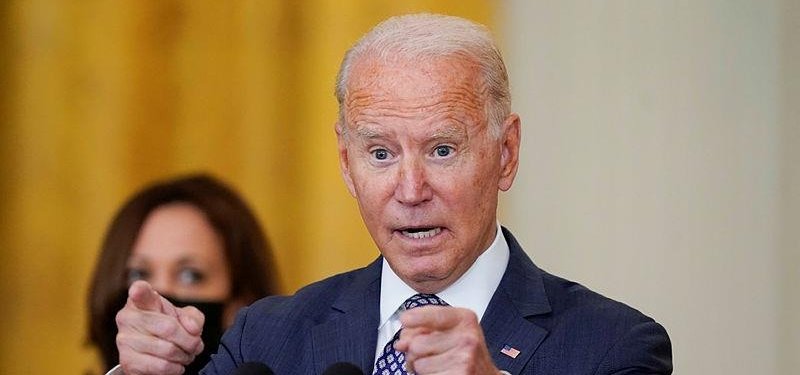
Why didn't Joe Biden leave 2,500 U.S. troops in Afghanistan?
- World
- AFP
- Published Date: 11:22 | 20 August 2021
- Modified Date: 11:33 | 20 August 2021
That was how many US forces remained in the country when Biden took office in January, after his predecessor Donald Trump slashed their numbers from 15,000.
In appearances, the 2,500 troops and 16,000 US civilian contractors behind them, seemed to have been enough to keep the Afghan government in power in the year after Trump signed a withdrawal agreement with the Taliban insurgents on February 29, 2020.
Trump set a final pullout date of May 1, 2021, and even tried to speed that up.
While the Taliban stepped up attacks on Afghan government targets, their gains remained limited to non-strategic rural areas.
But, abiding to the agreement, their attacks on US and NATO forces meanwhile almost dried up. No US soldier was killed after Trump's deal.
Critics argue this showed that, when backed by a skeleton US force, Kabul could hold the line against the insurgents.
A battlefield stalemate was more desirable than a full Taliban victory, they said.
"We only had 2,500 troops there, light touch, no chaos, not a single American soldier killed in a year in combat," top Republican Senator Mitch McConnell said this week.
He urged Biden to increase support for Afghan troops rather than leave.
"If we let the Taliban dominate Afghanistan and Al-Qaeda return, it will resonate throughout the global jihadist movement," McConnell said.
'THIRD DECADE OF CONFLICT'
Biden, who had long advocated exiting Afghanistan, launched a review after taking office.
In April, he announced his decision: the US would leave, but the departure deadline was pushed back three months, to the end of August.
The choice, Biden explained on August 16, "was either to follow through on that agreement or be prepared to go back to fighting the Taliban."
Without an exit date, he said, the Taliban would have resumed attacks on US targets.
"There was no status quo of stability without American casualties after May 1," he said.
The choice was "either following through on the agreement to withdraw our forces, or escalating the conflict and sending thousands more American troops back into combat in Afghanistan, lurching into the third decade of conflict."
AIMING FOR EQUILIBRIUM
The impact of Biden's decision was stunning. The Taliban accelerated their campaign, Afghan troops stopped fighting, and government officials handed over their cities without resisting, until Kabul fell on August 15.
Military historian Max Boot, writing in the Washington Post, tied Biden's pullout decision directly to the disintegration of the Afghan forces.
"Many argued that a mere 2,500 US troops could make no difference," he wrote.
"The history of the past few months repudiates this view: The final Taliban offensive began only when the US troop pullout was nearly complete."
If the United States left 2,500 troops in the country and continued to provide air support to Afghan troops, it "was enough to maintain a tenuous equilibrium in which the Taliban made advances in the countryside, but every city remained in government hands," Boot said.
DEEPLY DEPENDENT
One thing Biden and critics agree on: the Afghan government and security forces were deeply dependent on the United States.
And with US military support, technical know-how and money gone, the Afghan security edifice crumbled.
Critics say US troops should have remained, much as the United States keeps a 2,500-strong force in Iraq, and larger numbers in Germany, South Korea and Japan, since World War II and the Korean War.
It would be worth preventing an Al-Qaeda-allied jihadist takeover of the country, they say.
Biden and his supporters say the continuing cost in American lives and money, supporting an openly corrupt an ineffective government in Kabul, would not justify it.
The outcome would be the same five years down the road, said Biden.
White House National Security Advisor Jake Sullivan argued that even when the Trump administration ramped up the US troop presence to 15,000 troops in 2017, Sullivan said, Afghan forces lost ground.
"What has unfolded over the past month has proven decisively that it would have taken a significant American troop presence, multiple times greater than what President Biden was handed, to stop a Taliban onslaught. And we would have taken casualties."

